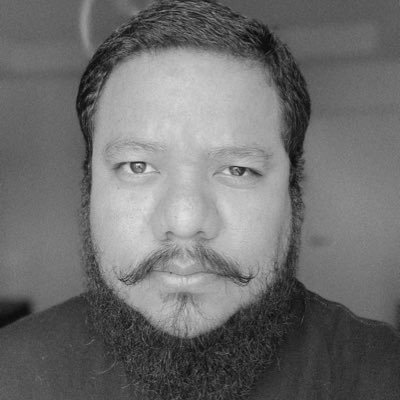Exiled Nicaraguan journalist Néstor Arce says cost of continuing to do journalism multiplied by three
In honor of World Press Freedom Day on May 3, members of the National Press Club’s Press Freedom Team have interviewed journalists in exile from around the world. We are featuring their stories to shed light on press-freedom issues worldwide.
Wilson Liévano, managing editor at The GroundTruth Project and director of training at Report for the World, interviews Néstor Arce, director and multimedia producer at Divergentes, about working in exile.
Q: What is the political and social situation in Nicaragua and how has it led to your exile?
 Arce: In Nicaragua since 2018, when the social protests against the government reached a boiling point, the practice of journalism has been criminalized. Since then, news organizations have been closed and seized, and more than 180 journalists have been exiled.
Arce: In Nicaragua since 2018, when the social protests against the government reached a boiling point, the practice of journalism has been criminalized. Since then, news organizations have been closed and seized, and more than 180 journalists have been exiled.
Divergentes’ newsroom has been in exile since June of 2021, when our editor and our finance director were summoned to the public prosecutor’s office to be falsely charged as part of a “money laundering” case against the now extinct Fundación Violeta Barrios.
Later in 2022, when we won the Ortega y Gasset award, the regime continued the harassment, and we were forced to leave Nicaragua to protect our lives and freedoms so we could continue practicing journalism and telling the reality of the country.
Q: Tell us more about the process of moving a newsroom to a different country. What were the biggest challenges you faced? How have these challenges changed now that you have been in exile for a while?
Arce: The economic cost of continuing to do journalism from exile is multiplied by three, even more when you move to a country with a higher cost of living than Nicaragua. But even before that, covering the moving costs of our collaborators in a safe way represented a high investment, given that we couldn’t use the regular borders to leave the country.
Technology has been very helpful to coordinate and keep the cohesiveness of the newsroom from multiple places. Task management, communication, and data-storage software have been key to keep us connected and monitor the events that are happening in Nicaragua.
Aside from the economic, the other important risk we face — and this goes back to 2007 when Daniel Ortega returned to power — is the access to public information. Our sources trust the work we do, and that has helped us publish investigative reports that reveal the corruption of the state.
Q: How has the way you do journalism changed?
Arce: The most significant change is the challenge of telling the stories of a country when you can’t live in it. The trust of sources and readers has helped to keep writing about what’s happening in Nicaragua, while maintaining the ethical and quality standards of journalism. We also bet always on creative and dynamic journalism that explains the events that are changing Nicaragua and Central America and that connects with younger audiences.
Q: What kind of help is most useful for you and other exiled media?
Arce: Financial support is important in this context. For users to read our work and share the stories and investigations we do is also helpful. Something very important as well is the training. Offering Nicaraguan journalists opportunities to learn, formally or through technical training and exchanges that help improve our news organizations.
Q: What advice would you give to other media in exile or those who are thinking of leaving their country?
Arce: To build and strengthen their relationships with their sources inside their country that will allow you to keep receiving information and data that can support your stories and investigations. Also to develop the fidelity of your audiences, making them more aware of what the work of a journalist entails, not just of the economic cost, but also of the intangible benefits that truthful information provides to society. A better-informed community makes correct decisions. Also, don’t abandon your collaborators. Journalists are the prime resource of information.
